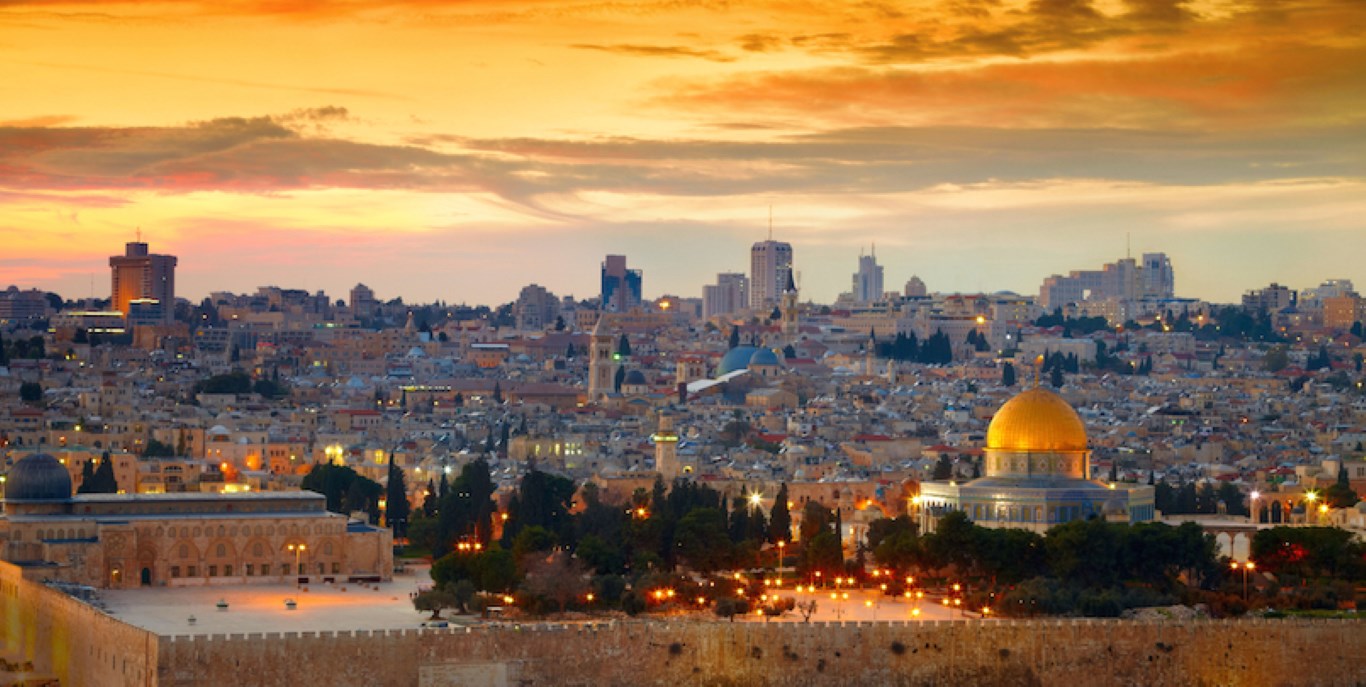Birth of a nation
July 5, 2017 | Expert Insights

On May 14, 1948, the State of Israel was established with a proclamation from the Prime Minister, David Ben-Gurion.
Celebrations had barely begun when the troops from Iraq, Syria, Jordan, Lebanon and Egypt invaded. Thus, began the Arab-Israeli war, the first of many conflicts that would take place in the region. Unsurprising, given that its birth was a violent affair by itself.
Background
Israel is the world's only Jewish state. The Jews staked claim for a land of their own due to religious reasons. They trace their origins to Abraham, who they consider as their patriarch.
A number of Jews migrated to Europe predating the Roman Empire. In fact, they accounted for 10% of the population. Though a prosperous commune, the Jews were subjected to a wide range of restrictions and discrimination.
Around late 19th century, there was a rise of nationalism amongst the Jewish people with many calling for a separate state. In February 1896, Theodor Herzl authored Der Judenstaat, a pamphlet that laid down the case for a modern Jewish state. This pamphlet would become one of the most important texts in the Zionist movement. Religion was used as the foundation for the claim. In the early 20th century, thousands of Jews emigrated to Palestine and established Kibbutz.
In 1917, Arthur James Balfour, the Foreign Secretary of Britain, wrote a brief letter to Baron Lionel Walter Rothschild, an influential Jewish citizen. He conveyed that the British government would support the creation of Jewish homeland in Palestine. This has come to be known as the Balfour Declaration. Around this time British troops took control of Palestine.
World War II & concentration camps
Sympathy from the international community for the Jewish cause intensified at the end of World War II. The world was shocked by the Holocaust wrought by Nazi Germany. 6 million Jews were killed as the result of the atrocities.
In 1947, the British government announced that it wished to withdraw from Palestine. The Great Wars had vastly depleted its resources. Therefore, it handed the mandate over to the League of Nations. Post that, the United Nations adopted a plan to partition Palestine into Arab and Jewish sections. This was met with outrage from Arab nations and sparked a civil war between the Jews and the Arabs. The Jewish forces had better resources and military equipment and drove hundreds of thousands of Palestinian Arabs from their own homes.
Wars and conflicts
The US had initially withdrawn its support for the partition as the violence intensified. But on 14th May, both the United States and the Soviet Union recognized Israel.
In the immediate aftermath, the war between Arab nations and Israel took place. The Arabs were initially on the offensive but their military resources dried up when the UN declared an arms embargo on the region. Only Czechoslovakia violated the agreement and provided weapons to Israel. In 1949, Israel signed a series of armistice agreements with the Arab nations involved. No peace treaties were signed and in 1967, Israel fought the decisive “Six Day War” against Egypt, Jordan and Syria.
Major wars such as the War of Attrition, Yom Kippur War and the Gaza War have been fought over the years. Nearly every effort by the international community to establish peace in the region has failed.
Despite the conflicts, the state of Israel has grown into one of the most advanced nations. Nearly every facet, including its intelligence agency (Mossad) is among the best in the world. It has also become the hotbed for innovation and entrepreneurship. In contrast, these conflicts have had an extremely adverse effect on the Palestinian economy and its way of life. A World Bank report stated that the Israeli restriction on West Bank had caused the Palestinian economy to lose $3.4 billion.
Assessment
Our assessment is that while Israel has grown economically and technologically stronger since its inception, it could do even better to find peace with the Palestinians.








Comments